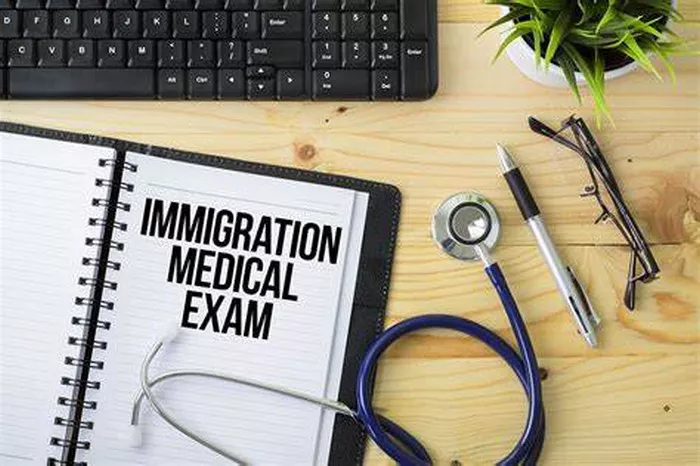Singapore is a vibrant and thriving hub of commerce, culture, and tourism in Southeast Asia. Renowned for its efficient infrastructure, economic stability, and high standard of living, Singapore attracts millions of visitors and expatriates from around the world each year. Whether you’re planning to visit Singapore for leisure, work, or study, understanding the medical requirements for obtaining a visa is essential. This article aims to provide a comprehensive overview of the medical tests necessary for obtaining a visa to Singapore.
Overview of Singapore Visa Requirements
Before delving into the specific medical tests required for a Singapore visa, it’s crucial to understand the visa application process and the different types of visas available. The Immigration and Checkpoints Authority (ICA) of Singapore is responsible for issuing visas and managing immigration matters in the country.
There are various types of visas for individuals intending to visit, work, study, or reside in Singapore, including:
Tourist Visa (Short-Term Visit Pass): For individuals visiting Singapore for tourism or social purposes.
Employment Pass (EP): For foreign professionals, managers, executives, and specialists employed by Singaporean companies.
Student Pass: For international students enrolled in educational institutions in Singapore.
Dependent’s Pass: For spouses and children of EP holders who wish to join them in Singapore.
Long-Term Visit Pass (LTVP): For individuals who wish to stay in Singapore for an extended period for family ties, business purposes, or other reasons.
The specific requirements for each type of visa may vary, but one common aspect is the need to undergo medical examinations to ensure public health and safety within Singapore.
Medical Examination Requirements
The medical examination requirements for a Singapore visa are primarily aimed at preventing the spread of infectious diseases and protecting public health. The exact tests and procedures may differ depending on factors such as the applicant’s age, intended length of stay, and country of origin. However, there are some general guidelines that applicants should be aware of:
Authorized Clinics: The ICA designates certain medical institutions and clinics in various countries as authorized to conduct medical examinations for visa applicants. These clinics are equipped to perform the necessary tests and provide the required documentation to support the visa application.
Health Declaration Form: Visa applicants are typically required to complete a health declaration form as part of the application process. This form may include questions about the applicant’s medical history, recent travel, and exposure to infectious diseases.
Medical History Review: During the medical examination, a qualified healthcare professional will review the applicant’s medical history, including any pre-existing conditions or previous illnesses. This information helps assess the applicant’s overall health status and identify any potential risks.
Physical Examination: A thorough physical examination is usually conducted to assess the applicant’s general health and detect any signs of illness or disease. This may include measurements of height, weight, blood pressure, and other vital signs.
Blood Tests: Blood tests are commonly performed to screen for infectious diseases such as HIV/AIDS, hepatitis B and C, syphilis, and tuberculosis (TB). These tests help identify individuals who may pose a risk to public health due to communicable diseases.
Chest X-Ray: A chest X-ray is often required to screen for tuberculosis, as TB is a prevalent infectious disease worldwide. The X-ray helps detect any abnormalities in the lungs that may indicate active TB infection.
Vaccination Status: Some visa categories may require proof of vaccination against certain diseases, such as yellow fever or measles. Applicants should ensure they are up to date with their vaccinations and carry documentation to support their immunization status.
Special Considerations: In some cases, additional tests or evaluations may be required based on individual circumstances or specific visa requirements. For example, pregnant women may need to undergo additional prenatal screening, while elderly applicants may require assessments of their functional capacity.
Preparing for the Medical Examination
To facilitate a smooth and efficient visa application process, applicants should take the following steps to prepare for their medical examination:
Schedule an Appointment: Contact an authorized clinic or medical institution in your country to schedule a medical examination appointment. Be sure to inquire about any specific requirements or documents you need to bring to the appointment.
Gather Documentation: Bring any relevant medical records, vaccination certificates, and identification documents to the medical examination appointment. This will help the healthcare provider assess your health status accurately and complete the required paperwork for your visa application.
Follow Pre-Exam Instructions: Follow any instructions provided by the clinic regarding fasting or dietary restrictions before the medical examination. This ensures accurate results for blood tests and other diagnostic procedures.
Be Honest and Transparent: Provide accurate and truthful information during the medical examination, including details about your medical history, travel history, and current health status. Failure to disclose relevant information could delay your visa application or result in its rejection.
Address Any Health Concerns: If you have any underlying health concerns or medical conditions, discuss them with the healthcare provider during the examination. They can provide guidance on managing your health and addressing any potential issues that may arise during the visa application process.
Conclusion
Obtaining a visa to Singapore requires adherence to specific medical examination requirements designed to protect public health and safety. By understanding these requirements and preparing accordingly, visa applicants can navigate the application process with confidence. Remember to schedule your medical examination appointment in advance, gather all necessary documentation, and be honest and transparent during the examination. With careful preparation and compliance with the medical requirements, you can enhance your chances of a successful visa application and enjoy your stay in Singapore hassle-free.


